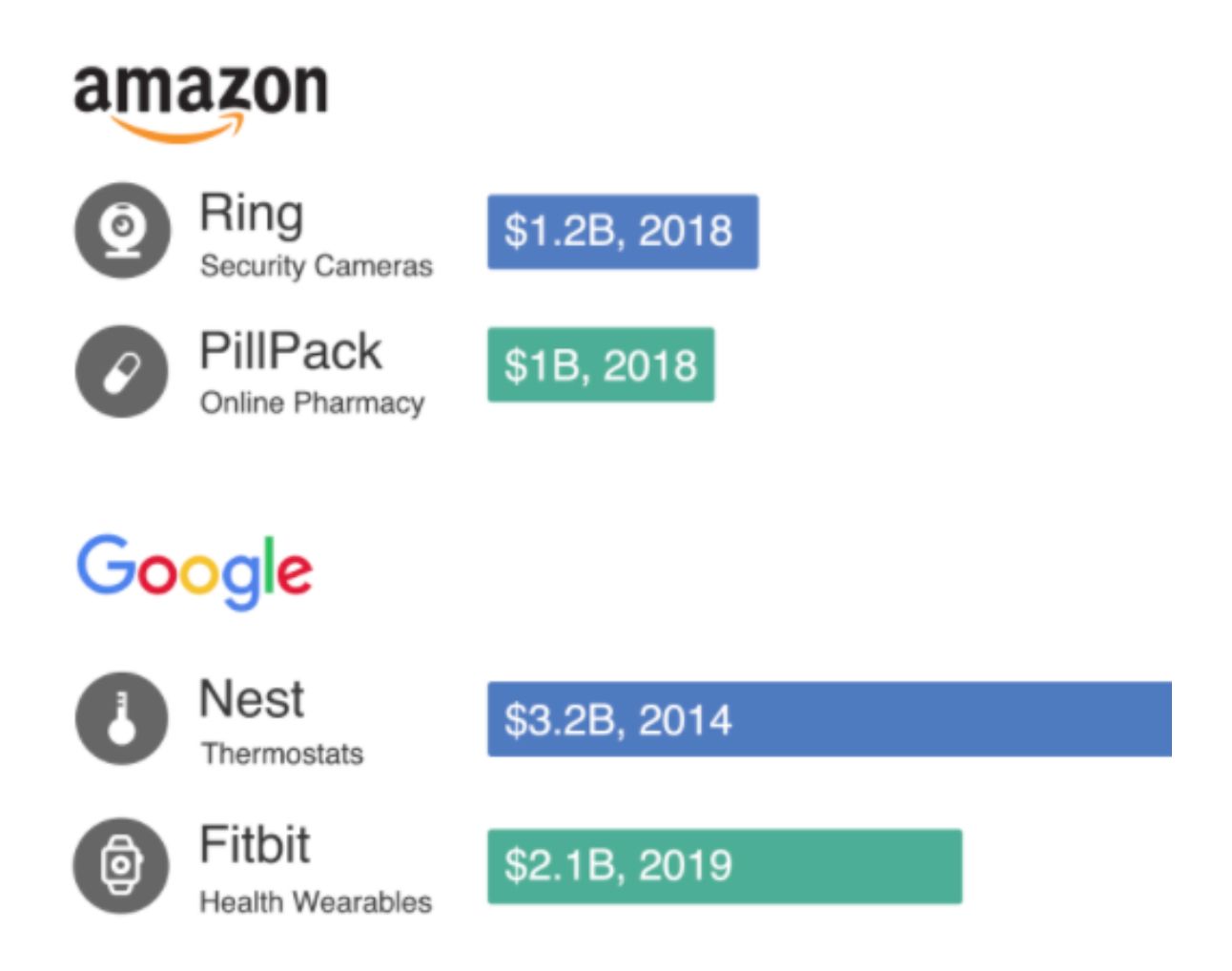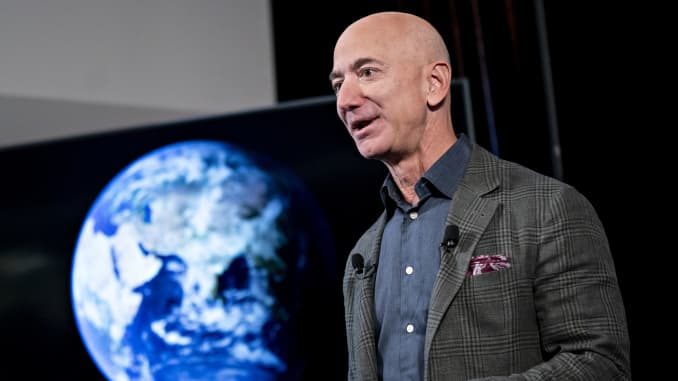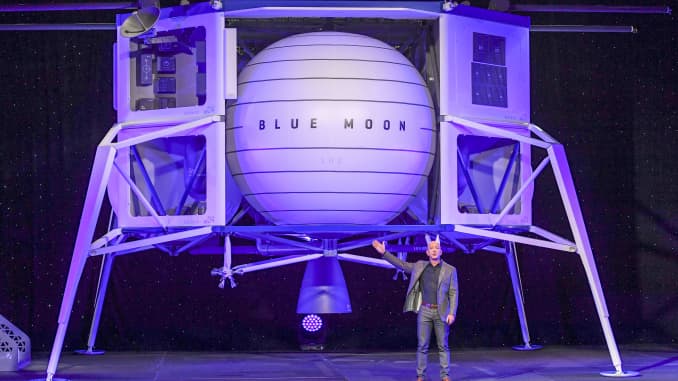It is purely on latest news on cryptocurrencies, Fintech, IoT, Blockchain and their latest updates, performance, benefits, innovations, and developments
Testadex Group News: Big Tech Is Acquiring Access to Your Health & Home
Big Tech Is Acquiring Access to Your Health & Home
SMART HOMES: THE FINAL FRONTIER

BILLION DOLLAR DATA ACQUISITIONS

PATENT PENDING: SIGNALING THE FUTURE
What Amazon really wants is not just access to your data, but control of your home.
About IoTeX
Founded as an open source platform in 2017, IoTeX is building the Internet of Trusted Things, an open ecosystem where all “things” — humans, machines, businesses, and DApps — can interact with trust and privacy. Backed by a global team of 30+ top research scientists and engineers, IoTeX combines blockchain, secure hardware, and confidential computing to enable next-gen IoT devices, networks, and economies. IoTeX will empower the future decentralized economy by “connecting the physical world, block by block”.
Testadex Group News: The FCC authorizes Amazon’s satellite internet net...
The FCC authorizes Amazon’s satellite internet network that would compete with Elon Musk’s Starlink
- The FCC declared on Thursday that Amazon may build its ambitious satellite internet system, which would compete with SpaceX’s Starlink network.
- Amazon’s project, known as Kuiper, would see the company launch 3,236 satellites into low Earth orbit.
- Morgan Stanley has declared that Kuiper has the potential to be a ”$100 billion opportunity” for Jeff Bezos’ company.

- Jeff Bezos, founder and chief executive officer of Amazon, speaks in Washington, D.C., on Sept. 19, 2019.Andrew Harrer | Bloomberg | Getty Images
The Federal Communications Commission declared on Thursday that Amazon may build its ambitious satellite internet system, which would compete with SpaceX’s Starlink network.
Amazon’s project, known as Kuiper, would see the company launch 3,236 satellites into low Earth orbit. Amazon says it will deploy the satellites in five phases, with broadband service beginning once it has 578 satellites in orbit.
“We conclude that grant of Kuiper’s application would advance the public interest by authorizing a system designed to increase the availability of high-speed broadband service to consumers, government, and businesses,” the FCC secretary Marlene Dortch said in its authorization order.
The company has not outlined a timeline or cost for Kuiper and the FCC said the company has not finished the satellites’ design. But Morgan Stanley has declared the high-speed internet network has the potential to be a ”$100 billion opportunity” for Jeff Bezos’ company.
Kuiper is poised to go toe-to-toe with SpaceX’s Starlink network of high-speed internet satellites, which Elon Musk’s company has been steadily launching for the past year. SpaceX has launched more than 500 Starlink satellites and aims to begin offering direct-to-consumer broadband service later this year.
https://www.cnbc.com/video/2019/12/19/amazon-and-elon-musks-spacex-plan-to-launch-more-satellites-than-ever.html
One issue that SpaceX pushed back on during was Kuiper’s approach to orbital debris. While Amazon emphasized that it would remove its satellites from orbit within 355 days of them completing their missions, SpaceX pointed out that Kuiper “failed to submit a casualty risk analysis” of whether Amazon’s satellite debris might survive reentry. Part of that analysis would be an estimate calculating “the probability of human casualty,” which the FCC said Amazon will have to latter present as a part of a final debris mitigation plan.
Notably, SpaceX wasn’t the only one to push back during the FCC’s consideration of Amazon’s application. Iridium Communications, Hughes Network Systems, Intelsat, Inmarsat, SES, WorldVu, Telesat and Theia also filed comments about or petitions against Kuiper’s application.
Amazon’s space reach
Amazon has steadily expanded its reach in the space industry, most recently setting up a new unit called Aerospace and Satellite Solutions under its Amazon Web Services division.

- Jeff Bezos, founder of Amazon, Blue Origin and owner of The Washington Post via Getty Images, introduces their newly developed lunar lander “Blue Moon” and gives an update on Blue Origin and the progress and vision of going to space to benefit Earth at the Walter E. Washington Convention Center.Jonathan Newton | The Washington Post | Getty Images
While wholly separate from Amazon, Bezos also runs another space venture called Blue Origin that is developing next-generation rockets and spacecraft such as a lunar lander for returning humans to the moon. A team led by Blue Origin recently won a NASA contract worth $579 million as it competes with Elon Musk’s SpaceX and aerospace contractor Dynetics to build spacecraft that help the agency achieve its goal of landing astronauts on the moon by 2024.
Kuiper is the name of a belt of objects that include asteroids and dwarf planets. It was named for the late Dutch American astronomer Gerard Kuiper.
How to Let Your Partner Know You're Not in the Mood without hurting
For couples, emotional connection and sexual intimacy are dynamically related, so difficulties in one area often destabilize the other are...

-
Greetings our dear supporters! We are back with our Monthly Project Update for October 2020. Now that Ucam is listed on Amazon , we are ...
-
For couples, emotional connection and sexual intimacy are dynamically related, so difficulties in one area often destabilize the other are...
-
IoTeX and IOTA are two cryptocurrencies that are looking to connect IoT and cryptocurrency to improve efficiency and security. All data is a...

